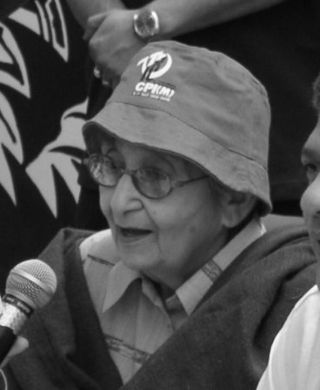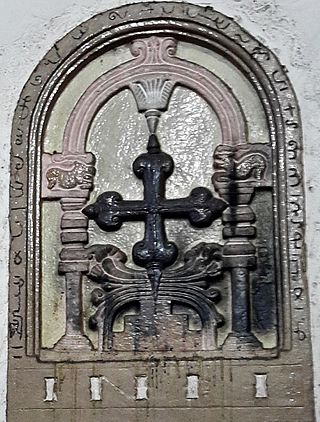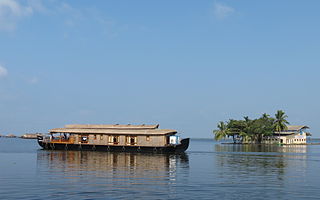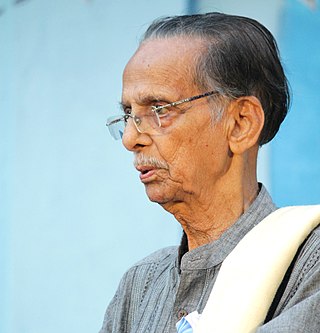
Malayalam is a Dravidian language spoken in the Indian state of Kerala and the union territories of Lakshadweep and Puducherry by the Malayali people. It is one of 22 scheduled languages of India. Malayalam was designated a "Classical Language of India" in 2013. Malayalam has official language status in Kerala, Lakshadweep and Puducherry (Mahé), and is also the primary spoken language of Lakshadweep and is spoken by 35 million people in India. Malayalam is also spoken by linguistic minorities in the neighbouring states; with a significant number of speakers in the Kodagu and Dakshina Kannada districts of Karnataka, and Kanyakumari, Coimbatore and Nilgiris district of Tamil Nadu. It is also spoken by the Malayali Diaspora worldwide, especially in the Persian Gulf countries, due to the large populations of Malayali expatriates there. They are a significant population in each city in India including Mumbai, Bengaluru, Delhi, Kolkata, Pune etc. Malayalam is closely related to the Tamil language.

Kozhikode, also known in English as Calicut, is a city along the Malabar Coast in the state of Kerala in India. It has a corporation limit population of 609,224 and a metropolitan population of more than 2 million, making it the second most populous metropolitan area in Kerala and the 19th largest in India. Kozhikode is classified as a Tier 2 city by the Government of India.

Thrissur, formerly Trichur, also known by its historical name Thrissivaperur, is a city and the headquarters of the Thrissur district in Kerala, India. It is the third largest urban agglomeration in Kerala after Kochi and Kozhikode, and the 21st largest in India. The city is built around a 65-acre (26 ha) hillock called the Thekkinkaadu Maidaanam which seats a large Hindu Shiva Temple. It is located 304 kilometres (189 mi) north-west of the state's capital city, Thiruvananthapuram. Thrissur was once the capital of the Kingdom of Cochin, and was a point of contact for the Assyrians, Greeks, Persians, Arabs, Romans, Portuguese, Dutch and English.

Lakshmi Sahgal was a revolutionary of the Indian independence movement, an officer of the Indian National Army, and the Minister of Women's Affairs in the Azad Hind government. Lakshmi is commonly referred to in India as Captain Lakshmi, a reference to her rank when taken prisoner in Burma during the Second World War.

Ayillyath Kuttiari Gopalan Nambiar, popularly known as A. K. Gopalan or AKG, was an Indian communist politician. He was one of 16 Communist Party of India members elected to the first Lok Sabha in 1952. Later he became one of the founding members of the Communist Party of India (Marxist).
The Malayali people are a Dravidian ethnolinguistic group originating from the present-day state of Kerala in India, occupying its southwestern Malabar coast. They form the majority of the population in Kerala and Lakshadweep. They are predominantly native speakers of the Malayalam language, one of the six classical languages of India. The state of Kerala was created in 1956 through the States Reorganisation Act. Prior to that, since the 1800s existed the Kingdom of Cochin, the Kingdom of Travancore, Malabar District, and South Canara of the British India. The Malabar District was annexed by the British through the Third Mysore War (1790–92) from Tipu Sultan. Before that, the Malabar District was under various kingdoms including the Zamorins of Calicut, Kingdom of Tanur, Arakkal kingdom, Kolathunadu, Valluvanad, and Palakkad Rajas.

Christianity is India's third-largest religion with about 26 million adherents, making up 2.3 percent of the population as of the 2011 census. The written records of Saint Thomas Christians mention that Christianity was introduced to the Indian subcontinent by Thomas the Apostle, who sailed to the Malabar region in 52 AD.

Malabar District, also known as Malayalam District, was an administrative district on the southwestern Malabar Coast of Bombay Presidency (1792–1800), Madras Presidency (1800–1937), Madras Province (1937–1950) and finally, Madras State (1950–1956) in India. It was the most populous and the third-largest district in the erstwhile Madras State. The historic town of Calicut was the admisnitrative headquarters of this district.

Malappuram is a city and the headquarters of the Malappuram district in Kerala, India. It is the 4th largest urban agglomeration in Kerala and the 20th largest in India. The city is spread over 158.20 km2 (61.08 sq mi) including the surrounding suburban areas. The first municipality in the district formed in 1970, Malappuram serves as the administrative headquarters of Malappuram district. Divided into 40 electoral wards, the city has a population density of 4,800 per square kilometre. According to the 2011 census, the Malappuram metropolitan area is the fourth largest urban agglomeration in Kerala after Kochi, Calicut, and Thrissur urban areas and the 20th largest in India with a total population of 3 million. It is the fastest growing city in the world with a 44.1% urban growth between 2015 and 2020 as per the survey conducted by Economist Intelligence Unit (EIU) based on the urban area growth during January 2020. Malappuram is situated 54 km southeast of Calicut and 90 km northwest of Palakkad. It is the first Indian municipal body to provide free Wi-Fi connectivity to its entire residents. Malappuram is also the first Indian municipal body to achieve the International Organization for Standardization certificate. It is also the first complaint-free municipality in the state.
Mappila songs are a folklore Muslim song genre rendered to lyrics, within a melodic framework (Ishal), in Arabi Malayalam by the Mappilas of the Malabar region in Kerala, India. Mappila songs have a distinct cultural identity, while at the same time remain closely linked to the cultural practices of Kerala.

Kerala, called Keralam in Malayalam, is a state on the Malabar Coast of India. It was formed on 1 November 1956, following the passage of the States Reorganisation Act, by combining Malayalam-speaking regions of the erstwhile regions of Cochin, Malabar, South Canara, and Travancore. Spread over 38,863 km2 (15,005 sq mi), Kerala is the 21st largest Indian state by area. It is bordered by Karnataka to the north and northeast, Tamil Nadu to the east and south, and the Lakshadweep Sea to the west. With 33 million inhabitants as per the 2011 census, Kerala is the 13th-largest Indian state by population. It is divided into 14 districts with the capital being Thiruvananthapuram. Malayalam is the most widely spoken language and is also the official language of the state.

Kavalam Narayana Panicker was an Indian dramatist, theatre director, and poet. He has written over 26 Malayalam plays, many adapted from classical Sanskrit drama and Shakespeare, notably Kalidasa's Vikramorvasiyam, Shakuntalam (1982), Bhasa's Madhyamavyayogam (1979), Karnabharam, Uru Bhangam (1988), Swapnavasavadattam, and Dootavakyam (1996). He was the founder – director of theatre troupe, Sopanam, which led to the foundation of Bhashabharati: Centre for Performing Arts, Training and Research, in Trivandrum.
Kavalam Madhava Panikkar, popularly known as Sardar K. M. Panikkar, was an Indian statesman and diplomat. He was also a professor, newspaper editor, historian and novelist. He was born in Travancore, then a princely state in the British Indian Empire and was educated in Madras and at the University of Oxford.

Panamaram is a town,village in Wayanad district in the state of Kerala, India.

North Malabar refers to the geographic area of southwest India covering the state of Kerala's present day Kasaragod, Kannur, and Wayanad districts, and the taluks of Vatakara and Koyilandy in the Kozhikode District of Kerala and the entire Mahé Sub-Division of the Union Territory of Puducherry. Traditionally North Malabar has been defined as the northern portion of the erstwhile Malabar District which lies between Chandragiri River and Korapuzha River. The region between Netravathi River and Chandragiri River, which included the portions between Mangalore and Kasaragod, are also often included in the term North Malabar, as the Kumbla dynasty in the southernmost region of Tulu Nadu, had a mixed lineage of Malayali Nairs and Tuluva Brahmins.

Religion in Kerala is diverse. According to 2011 census of India figures, 54.73% of Kerala's population are Hindus, 26.56% are Muslims, 18.38% are Christians, and the remaining 0.33% follow other religions or have no religion. As of 2020, Hindus, Muslims, Christians and others account for 41.5%, 43.9%, 13.9% and 0.7% of the total child births in the state, respectively.

Alappat Sreedhara Menon, known as A. Sreedhara Menon, was an Indian historian from Kerala. He is best known as the State Editor (1958–68) of Kerala District Gazetteers (1961–1975). He served as registrar of the Kerala University from 1968 to 1977, before retiring in 1980.

The Malabar rebellion of 1921 started as a resistance against the British colonial rule in certain places in the southern part of old Malabar district of present-day Kerala. The popular uprising was also against the prevailing feudal system supposedly controlled by Hindus. During the rebellion, thousands of Hindus were murdered and forcibly converted to Islam.

The Malabar Coast is the southwestern region of the Indian subcontinent. It generally refers to the western coastline of India stretching from Konkan to Kanyakumari. Geographically, it comprises one of the wettest regions of the subcontinent, which includes the Kanara region of Karnataka and all of Kerala.
















